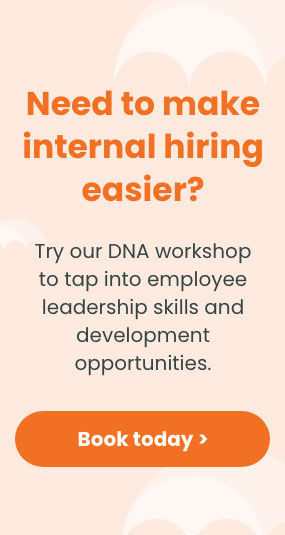Identifying leadership potential in candidates or employees is critical for organisational growth and success. While traditional interviews focus on past experiences and general competencies, scenario-based questions offer a dynamic way to assess how an individual might handle real-life challenges and opportunities. Here’s how scenario-based skills tests can be a powerful tool in identifying leadership potential.
Testing Problem-Solving Skills
Scenario-based questions often present complex, ambiguous situations that require thoughtful solutions. By asking candidates how they would handle specific challenges, such as resolving team conflicts or managing a sudden project crisis, you can assess their ability to think critically and make sound decisions under pressure.
- Example Question: "Imagine your team is falling behind on a critical project due to unforeseen circumstances. How would you handle this situation to ensure the project is completed on time?"
- Leadership Insight: This type of question reveals the candidate's problem-solving approach, their ability to stay calm under pressure, and their capability to prioritise and delegate tasks effectively—all key leadership traits.
Assessing Communication and Interpersonal Skills
Effective leaders must communicate, listen actively, and inspire their teams. Scenario-based questions can evaluate how a candidate approaches communication, particularly in challenging or high-stakes situations.
- Example Question: "How would you handle a situation where two key team members have a disagreement that is affecting the team's morale and productivity?"
- Leadership Insight: The candidate’s response can provide insight into their conflict resolution skills, empathy, and ability to maintain a positive team dynamic—essential qualities for any leader.
Evaluating Decision-Making Abilities
Leaders are often faced with tough decisions that require balancing multiple factors, such as company goals, team welfare, and ethical considerations. Scenario-based questions can highlight a candidate’s decision-making process and their capacity to make tough choices while considering the broader impact.
- Example Question: "You have to choose between meeting a tight deadline for a high-stakes project or giving your team extra time to ensure the highest quality. How would you approach this decision?"
- Leadership Insight: This question helps to assess the candidate’s prioritisation skills, ethical considerations, and their ability to balance short-term and long-term goals.
Understanding Adaptability
In today’s fast-paced business environment, leaders must be adaptable and open to innovation. Scenario-based questions that involve change management or navigating uncertainty can reveal how a candidate approaches new challenges and whether they are inclined to innovate.
- Example Question: "Suppose a key technology your team relies on becomes outdated, and you need to transition to a new system. How would you manage this change while keeping the team motivated and minimising disruption?"
- Leadership Insight: The candidate’s answer can showcase their adaptability, willingness to embrace change, and ability to guide their team through transitions smoothly—attributes that are crucial for effective leadership.
Identifying Strategic Thinking
Leaders need to think strategically, aligning their actions with the organisation’s long-term goals. Scenario-based questions that require candidates to consider the big picture can provide insights into their strategic mindset.
- Example Question: "You have the opportunity to lead a new project that could open up a significant market for the company, but it requires reallocating resources from another successful project. How would you approach this?"
- Leadership Insight: This question can uncover the candidate’s ability to weigh risks and benefits, think long-term, and align their decisions with the company’s strategic objectives.
Gauging Emotional Intelligence
Emotional intelligence (EI) is a key component of effective leadership, encompassing self-awareness, empathy, and the ability to manage emotions in oneself and others. Scenario-based questions that touch on emotionally charged situations can help assess a candidate's EI.
- Example Question: "Imagine you receive feedback that your leadership style is intimidating some team members. How would you respond to this feedback and what steps would you take to address the situation?"
- Leadership Insight: The candidate’s response can highlight their self-awareness, openness to feedback, and ability to adjust their behaviour for the betterment of the team—a crucial aspect of emotionally intelligent leadership.
Analysing Integrity and Ethics
Leaders often face ethical dilemmas, and their ability to navigate these challenges with integrity is vital. Scenario-based questions that present moral or ethical challenges can help identify candidates who prioritise ethics in their decision-making process.
- Example Question: "You discover that a close colleague has been bending company rules to achieve their targets. How would you handle this situation?"
- Leadership Insight: This question reveals the candidate’s ethical standards, willingness to address difficult situations, and commitment to maintaining integrity, even when it might be uncomfortable.
How to Prepare
Preparing for a scenario-based interview involves understanding the format, practising your responses, and developing a strategy for effectively showcasing your skills and experience. Here’s a step-by-step guide to help you prepare:
Understand the Purpose of Scenario-Based Questions
- Focus on Real-World Situations: Scenario-based questions are designed to assess how you would handle real-life challenges in the role you’re applying for. These questions test your problem-solving abilities, decision-making skills, communication, and leadership potential.
- Behavioural and Situational: These questions often require you to explain how you would handle hypothetical situations (situational) or how you have handled similar situations in the past (behavioural).
Research the Role and Company
- Understand the Job Requirements: Review the job description thoroughly to understand the key responsibilities and skills required. This will help you anticipate the types of scenarios you might be asked about.
- Company Culture and Values: Research the company’s culture, values, and recent developments. This can provide context for your answers and help you align your responses with the company’s expectations.
Review Common Scenario-Based Questions
- Leadership and Problem-Solving: Prepare for questions that assess your leadership potential, such as handling team conflicts, making tough decisions, or driving a project to completion under tight deadlines.
Stay Calm and Think Critically
- Pause and Reflect: If faced with a difficult scenario, take a moment to think before answering. It’s better to give a well-considered response than to rush into an answer.
- Critical Thinking: Focus on demonstrating your ability to think critically and strategically. Consider different perspectives and weigh potential outcomes before making a decision.
Highlight Soft Skills
- Communication and Empathy: Scenario-based questions often assess how you interact with others. Highlight your communication skills, emotional intelligence, and ability to work well in a team.
- Leadership and Initiative: Even if the scenario doesn’t explicitly ask for leadership, look for opportunities to show how you take initiative and lead by example.
Scenario-based questions are a powerful tool for uncovering leadership potential. They provide a window into how candidates think, react, and behave in real-world situations, offering deeper insights than traditional interview questions. By evaluating problem-solving skills, communication, decision-making, adaptability, strategic thinking, emotional intelligence, and ethics through these scenarios, organisations can more effectively identify and cultivate the leaders of tomorrow.
Using scenario-based questions in the recruitment and promotion process ensures that leadership roles are filled by individuals who not only have the right experience but also the right mindset to lead effectively in a dynamic, challenging environment.
Skillsarena provides companies with the opportunity to have their own scenario-based assessment created aligned to their company's behaviours and attitudes, known as a situational judgment test.




